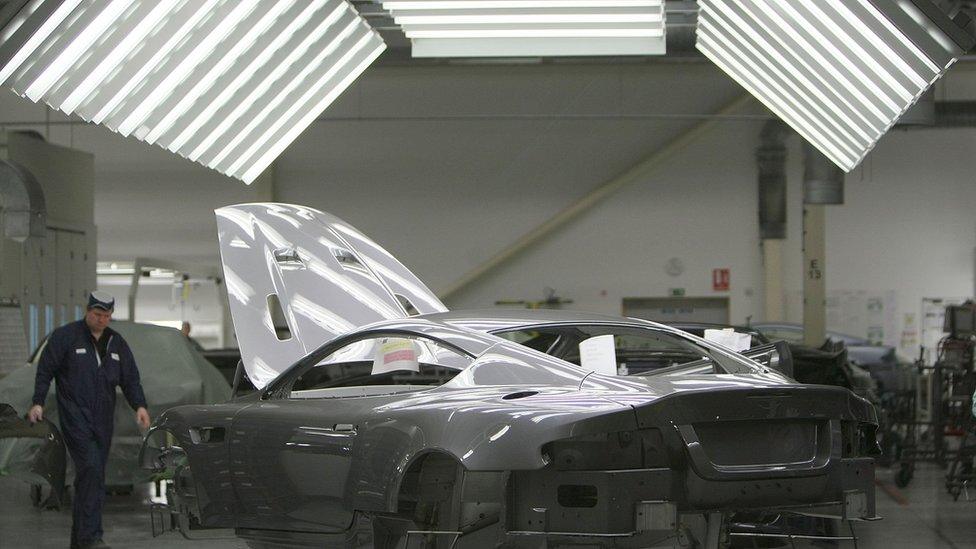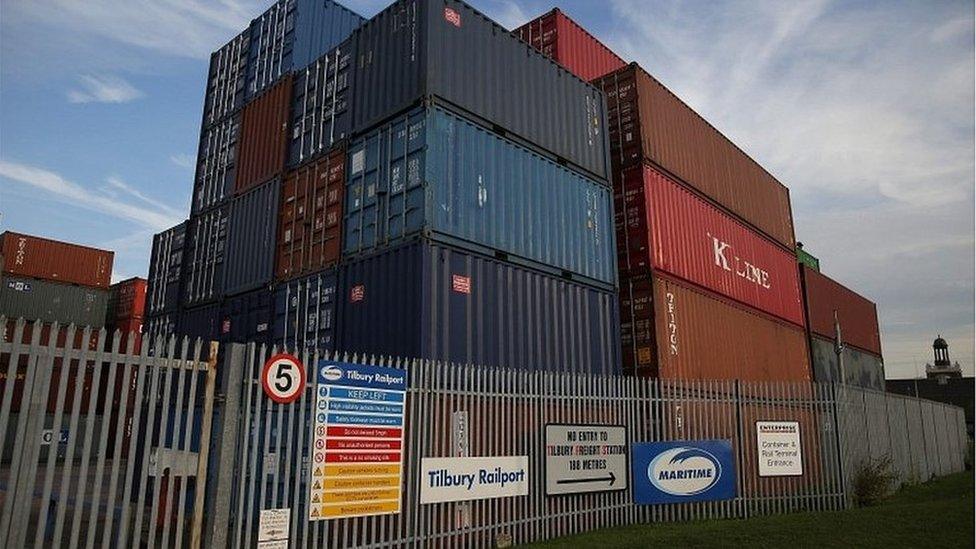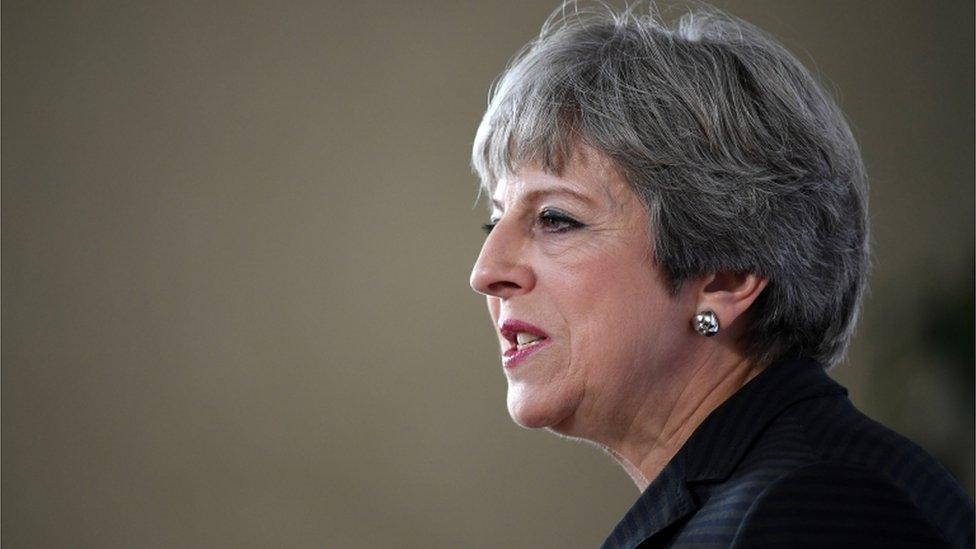Countdown to Brexit: UK imports and exports in six charts
- Published

The Aston Martin assembly plant in Gaydon, Warwickshire
Britain must break free of the "constraints" of the EU and become an agitator for free trade, according to the UK's Foreign Secretary, Boris Johnson. But what is Britain's trading relationship with its neighbours like at the moment?
International trade really matters for the British economy. About 28% of the goods and services we produce are sold abroad, while 30% of what we buy comes from other countries.

Our main trade partners are mostly the rich economies: the United States and other European nations.
The US is the largest single export market for our goods and services. It's also our largest foreign supplier of services. Germany is the biggest single source of imported goods.
But if you were a trader in goods or services and thinking about your options, you might want to group countries together if they had the same trade policy and presented the same barriers to your exports.
So, if you add the European Union countries together it's the UK's biggest trading partner for imports and exports of both goods and services.

Seven out of the top individual destination countries for UK exports of goods are in the EU. When it comes to services, it's almost as many - six of the top 10.
However, it's worth bearing in mind that the EU figures may be somewhat inflated by a phenomenon known as the Rotterdam effect. This is the effect of goods being sent around the world via the giant Dutch port, but being mistakenly classified as exports to the Netherlands.
But even allowing for that, it's clear that the EU market really matters.
The one exception to Western countries' dominance of the top 10 UK trade partners is China for goods. It comes in second for imports and sixth for exports.
We export a wide range of goods, including food and drink.
Plenty of people overseas (and not just expats) enjoy a wee dram now and then.
Whisky exports were worth more than £4bn last year. Beer, wine and gin were also in the top 10 along with chocolate and salmon, another one with a strong Scottish flavour.
There's a lot of stuff you can't eat or drink heading out as well; a wide range of machinery and parts, cars, jewellery, medicines and plastics are all important earners.
Important though industry is, the British economy is dominated by services, to the tune of close to 80%.
It's another story in terms of exports, where goods are still ahead, when you look at gross figures. But service exports are increasingly important; they have grown every year since the turn of the century.

This includes things such as financial services (mainly, but not only, in the City of London), other IT services, tourism and construction. Services imports are also up.
We sell a lot of stuff abroad. But we import more. There is a persistent deficit in our balance of trade. Actually it's a deficit in goods, partly offset by a smaller surplus on trade in services.
- Published27 September 2017

- Published22 September 2017
